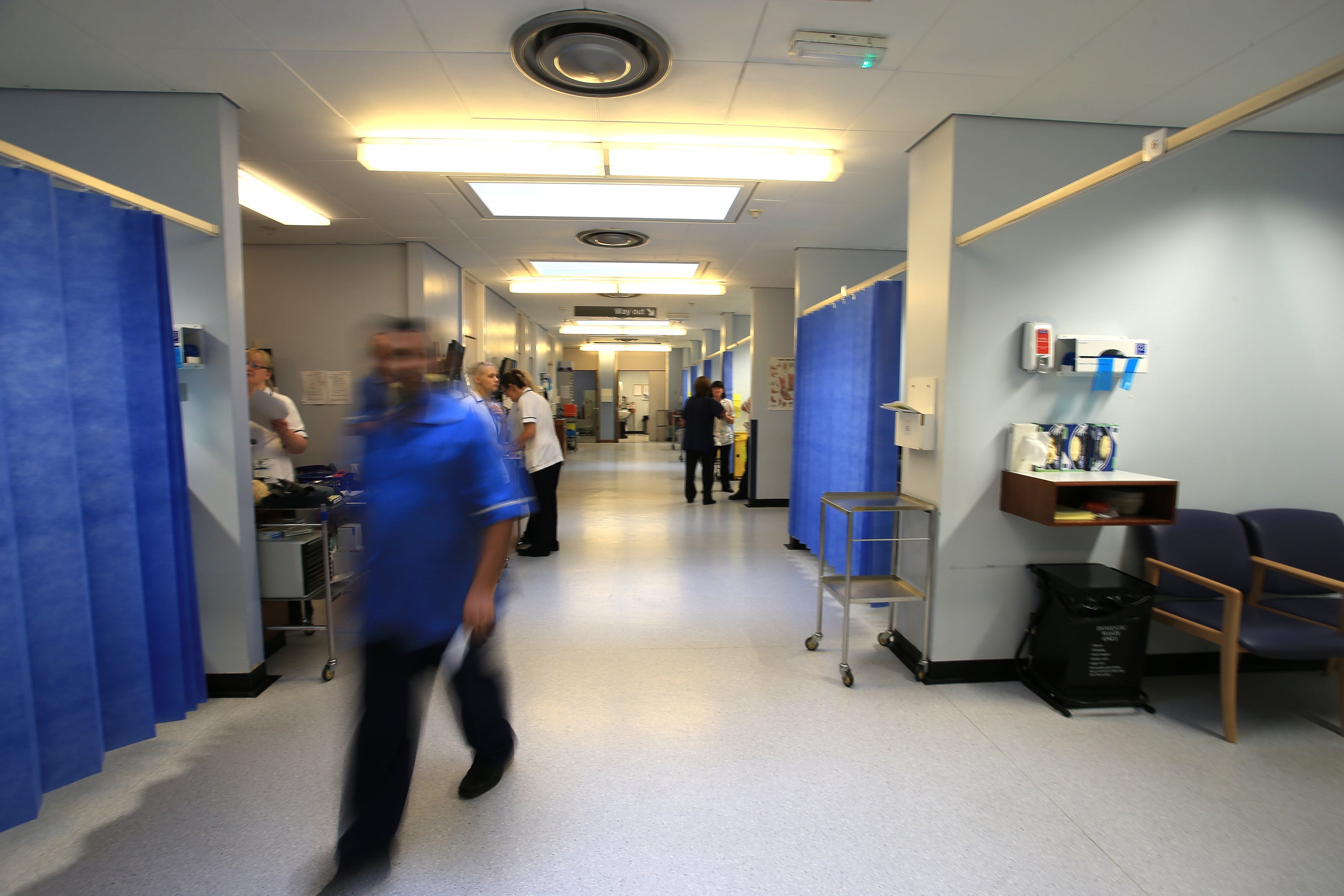Omicron is spreading rapidly and will push up hospital admissions, Sage says
Without further restrictions, the number of hospitalisations from Omicron may reach 1,000 per day or higher in England, experts said.

Omicron is spreading “rapidly” in the UK and is very likely to lead to a rise in hospital admissions, scientists advising the Government have said.
Minutes from a meeting held by the Scientific Advisory Group for Emergencies (Sage) on Tuesday said the proportion of Omicron infections that result in hospital admission cannot be known until there have been more people in hospital, but even if there was a “modest reduction in severity” of illness compared to the Delta variant, this “would not avert high numbers of hospitalisations if growth rates remained very high”.
The scientists said Omicron is likely to account for the majority of new Covid infections in the UK “within a few weeks” and it may partially or largely replace Delta, which is currently the dominant variant.
In its own assessment, the UK Health Security Agency (UKHSA) said it is likely that Omicron will become the dominant strain in Britain and it expects at least 50% of Covid-19 cases to be caused by Omicron in the next two to four weeks.
The Sage document said: “Although there are several unknown factors, preliminary modelling suggests that without any changes to measures in place, the number of hospitalisations from Omicron may reach 1,000 per day or higher in England by the end of the year (and still be increasing at that point).
“The overall scale of any wave of hospitalisations without interventions is highly uncertain, but the peak could reach several times this level.”
At the moment, around 769 patients per day are being admitted to hospital in the UK and around 680 in England.
Advising the need for ministers to consider restrictions, Sage added: “The peak is highly likely to be higher than 1,000 to 2,000 Omicron hospital admissions per day without intervention to slow the speed of increasing infections; for it to be below this level there would need to be only a small degree of immune escape and very high protection from boosters against Omicron.”
Sage said that hospital admissions are much more likely to be impacted by a fast-spreading variant and it managing to escape the protection of vaccines than any changes in its severity compared to Delta.
“With lags of the order of two or more weeks, and doubling times of the order of three days, it is likely that, once hospitalisations begin to increase at a rate similar to that of cases, four doublings (a 16-fold increase) or more could already be ‘in the system’ before interventions that slow infections are reflected in hospitalisations,” the experts added.
Sage put the doubling time for new Omicron infections at around three days in England, adding: “The underlying mechanisms of the growth rate advantage of Omicron remain unclear.
“Both increased transmissibility and escape from immunity (following infection and/or vaccination) are likely to play a role, although the relative contribution of each of these, or any other factors, is not yet known.”
The experts suggested that finding and isolating cases through contact tracing may become less effective if people are becoming infectious sooner, as has been suggested by some of the science.
“This would increase the relative importance of population-based rather than case-based measures, namely measures which affect everyone, not just those who are confirmed as being infected.”
Evidence from so-called “super-spreader” events also “suggest a greater role for airborne transmission than has previously been the case,” Sage said.
It added: “This means that measures to reduce airborne spread such as ventilation, well-fitting masks and distancing or reduced density of people in indoor environments may be even more important.”
In an assessment prepared for Sage, the Scientific Pandemic Influenza Group on Modelling, Operational sub-group (SPI-M-O) said that “any significant wave of infection, almost irrespective of immune escape, will spill over into hospitalisations.
“If initial estimates of transmission advantage and immune escape from South Africa are applicable to the UK population, there is the potential for a peak of infections much larger than that experienced in January 2021.
“Even if severity of Omicron were half that of Delta, the sheer number of infections could lead to significantly more pressures on health and care settings; currently there is no strong evidence that Omicron infections are either more or less severe than Delta infections.”
The group said that if Omicron’s immune escape reduces vaccine effectiveness against hospitalisation from, say, 96% to 92%, “that would effectively double the number of vaccinated individuals who are not protected from hospitalisation.”
In a statement, Dr Susan Hopkins, chief medical advisor for the UK Health Security Agency, said: “It is increasingly evident that Omicron is highly infectious and there is emerging laboratory and early clinical evidence to suggest that both vaccine-acquired and naturally acquired immunity against infection is reduced for this variant.
“It is therefore absolutely critical that we all do everything that we can to help break the chains of transmission and slow the spread of this new variant.
“Vaccination is critical to help us bolster our defences against becoming severely ill from this new variant – please get your first, second, third or booster jab without delay.
“Please also make sure to follow all Government guidance to reduce the spread of infection.
“It remains vital that anyone with Covid-19 symptoms isolates and gets a PCR test immediately.”
Bookmark popover
Removed from bookmarks